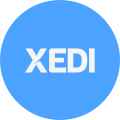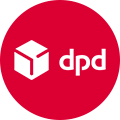Everything you need to run your business
Every aspect of your business, from accounts to the warehouse can use Profit4.
It will facilitate stock control, order management, reporting, finance and accounting.
As a scalable ERP system, it is suitable for SMEs and larger companies.

Profit4 will save you time & money
Grow your business without the need for extra staff
Make more informed decisions
Grow your business and maximise profits with 100% visibility
- Complete visibility of business performance
- Real-time data for stock levels and orders
- Real-time profit and loss financial data
- Quickly identify your most profitable products and those tying up capital
- Quickly identify sales leakage

Save valuable time & money
Increase efficiencies with our ERP software
- Remove the manual tasks that slow your business down
- Grow your business without the need for additional staff
- Automate order processing
- Avoid closing down for a manual stock take with perpetual stock takes
- Provide better customer service with faster stock picking and better communications

Connect all your sales channels
Manage your telephone, website, eCommerce (Amazon, eBay etc.) and trade counter orders within Profit4
- Understand the true performance of your business
- Identify how different sales channels are performing
- Provide online customers with automated order and dispatch updates
- Sell your products through more channels

Provide best-in-class customer service
Set yourself apart from your competitors and drive repeat custom
- Reduce stock-picking times
- Provide real-time updates on an order's status
- Provide accurate information on stock availability
- Ensure bestselling products are never out of stock

ERP software that grows with you
We understand that as a business you'll be keen to grow and expand
- Scalable ERP software, only pay for the number of users you need
- Manage a high volume of product SKUs
- Automate processes that would usually require additional staff
- Use cross-sell and upsell prompts to increase sales
- Increase efficiencies and customer service to encourage repeat custom

What sets our Cloud ERP software apart?
Profit4, is designed with the user in mind...
Access from any location
Whether working from home or on the road, you can access Profit4 anywhere through your browser.
A fast easy-to-use interface
No more waiting ages for data to load or trying to navigate overly complicated systems.
Fully customisable dashboards
Each user can quickly and easily create their own customised dashboard.
All the business features you need
Stock control sits at the heart of our ERP software. Designed with merchants, wholesalers and distributors in mind, we know that your operations revolve around your stock and Profit4 is no different.
Our stock control functionality lets you track stock levels in real-time, across multiple locations.
With advanced business intelligence, Profit4 will also automatically calculate your optimum stock levels, automate purchasing processes and significantly reduce stock-picking times.
Profit4's order management features enable you to track all online, trade counter and telephone orders at every step, in real-time. You will have complete visibility, from the moment an order is placed to when it arrives with your customer.
- Manual tasks will be removed
- Risk of human error reduced
- Customer service is significantly improved
Understanding your business' financial performance is crucial.
Therefore you don't want to wait for a report from an accountant to get a proper understanding of your finances. Profit4 will provide you with 100% visibility of your business performance in real-time.
Accessible in just a few clicks you will be able to view your profit and loss sheets so you can quickly identify any cashflow issues and make more informed business decisions to ensure the profitability of your business.
Profit4's CRM functionality enables you to manage your customer and prospect data easily.
View a customer's complete sales order history, in just a few clicks - enabling better communications and improved customer service.
Plus, identify opportunities for marketing. With the ability to profile and segment customers, you can send targeted marketing emails via Profit4 and offer bespoke promotional offers, increasing your overall sales.
Profit4's supplier relationship management software enables you to easily manage your supplier data, purchase orders and communications.
Enjoy 100% visibility of your entire business in just a few clicks.
Our ERP software provides fully customisable dashboards and reports - with stock, order and financial data available in real-time.
Drive growth and stay ahead of the competition by:
- Making better-informed decisions on what's driving profitability
- Identifying hidden sales opportunities and potential sales leakage
- Quick recognising stock that's tying-up capital


About us
We provide UK businesses with the software to help you succeed
- UK-based HQ & support
- Established in 1976
- A big company with a family feel
- 1,000's of UK users
- A focus on helping you grow
- Full implementation & ongoing support
Watch a 3-min demo today!
See Profit4 software in action and discover how it can benefit your business.

Frequently asked questions
Get in touch
To find out how our Profit4 ERP software can transform your business, arrange a call-back with one of our ERP Consultants.


















































